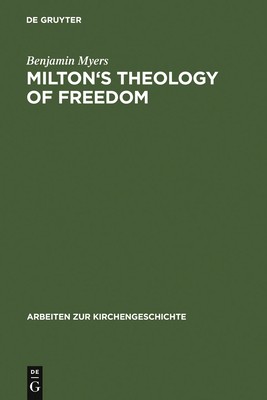
- We will send in 10–14 business days.
- Author: Benjamin Myers
- Publisher: De Gruyter
- Year: 2006
- ISBN-10: 3110189380
- ISBN-13: 9783110189384
- Format: 15.6 x 23.4 x 1.4 cm, kieti viršeliai
- Language: English
- SAVE -10% with code: EXTRA
Reviews
Description
At the centre of John Milton's epic poem Paradise Lost (1667) is a radical commitment to divine and human freedom. This study situates Paradise Lost within the context of post-Reformation theological controversy, and pursues the theological portrayal of freedom as it unfolds throughout the poem. The study identifies and explores the ways in which Milton is both continuous and discontinuous with the major post-Reformation traditions in his depiction of predestination, creation, free will, sin, and conversion. Milton's deep commitment to freedom is shown to underlie his appropriation and creative transformation of a wide range of existing theological concepts.
EXTRA 10 % discount with code: EXTRA
The promotion ends in 23d.13:25:11
The discount code is valid when purchasing from 10 €. Discounts do not stack.
- Author: Benjamin Myers
- Publisher: De Gruyter
- Year: 2006
- ISBN-10: 3110189380
- ISBN-13: 9783110189384
- Format: 15.6 x 23.4 x 1.4 cm, kieti viršeliai
- Language: English English
At the centre of John Milton's epic poem Paradise Lost (1667) is a radical commitment to divine and human freedom. This study situates Paradise Lost within the context of post-Reformation theological controversy, and pursues the theological portrayal of freedom as it unfolds throughout the poem. The study identifies and explores the ways in which Milton is both continuous and discontinuous with the major post-Reformation traditions in his depiction of predestination, creation, free will, sin, and conversion. Milton's deep commitment to freedom is shown to underlie his appropriation and creative transformation of a wide range of existing theological concepts.


Reviews